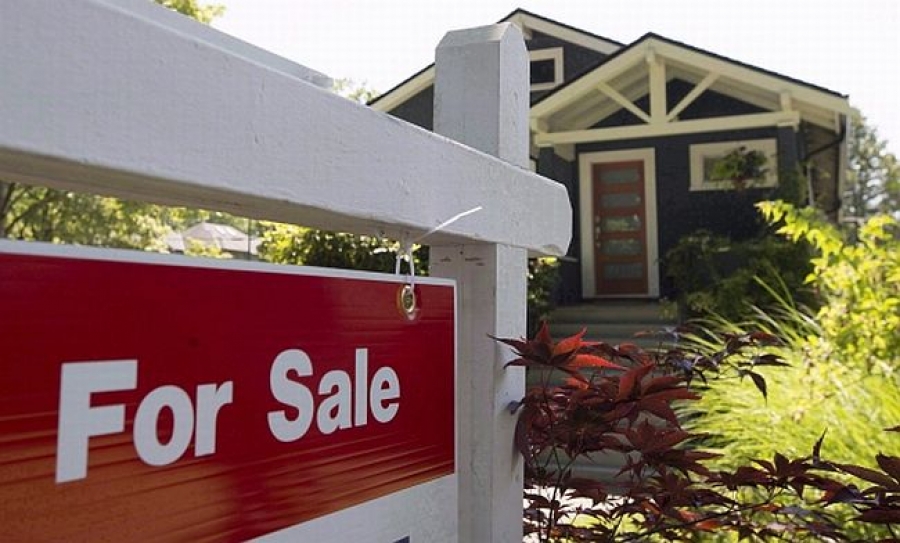Home prices in British Columbia "didn't spike overnight, and our housing problems can't be fixed with a single budget," says Selina Robinson, minister of Municipal Affairs and Housing for British Columbia, in the introduction to the government's new Homes for B.C. budget document. "It will take years of sustained action to bring housing affordability home. We are acting immediately by introducing a new speculation tax, increasing and expanding the foreign buyers tax and closing legal loopholes abused by speculators. And we're working hard to build the right supply."
But critics of the plan say it will make no dent in housing affordability and may make things worse by raising taxes for home buyers.
The speculation tax, starting in the fall of 2018, targets foreign and domestic speculators who do not pay income tax in B.C. The tax rate will be 0.5 per cent of taxable assessed value for the 2018 tax year and two per cent after that. It applies to Metro Vancouver, the Fraser Valley, Capital and Nanaimo Regional Districts, Kelowna and West Kelowna.
The foreign buyers tax is being increased to 20 per cent from 15 per cent. Previously confined to Metro Vancouver, it now also applies to the Fraser Valley, Nanaimo, Capital Regional District and Central Okanagan Regional District. Expanding the tax "to other communities ensures that speculation isn't pushed into neighbouring markets," says the government.
Beginning in 2019, the school tax on homes assessed over $3 million will be increased, and the Property Transfer Tax rates for these homes will rise to five per cent from three per cent.
The province is also taking steps to cut down on tax fraud and close loopholes that allow property owners to avoid paying taxes. It promises to work with the federal government to share information to combat money laundering and tax evasion.
The budget includes a pledge to invest more than $6 billion in affordable housing. It plans to build more than 14,000 rental units for "the missing middle" -- individuals, working families and seniors.
In a blog about the new budget, the Fraser Institute says the plan "focuses primarily on the ‘demand' side of the market while largely ignoring supply constraints, which help fuel higher home prices.
"Not only is it unclear that taxing non-resident buyers has significantly impacted home prices, but it's also not clear that demand-side policies can do much to limit cost increases in growing metropolitan areas, especially if the supply of new housing does not keep up with demand," says the Fraser Institute.
Anne McMullin, president/CEO of the Urban Development Institute -- Pacific Region, says, "We are extremely concerned new and far-reaching housing tax increases will not have a positive impact on affordability." She says, "These half billion in alarming new real estate taxes also target buyers and homeowners. Unfortunately, today's budget did not address the real problem of getting new housing approved and built."
She cited a recent study about home prices by Canada Mortgage and Housing Corp. that says the weak supply response in Vancouver is a critical driver of the housing affordability issue. "In many municipalities it can take four to five years to receive approvals and two to three years to construct new buildings -- that means we won't see any relief from this new housing investment for more than seven years."
The British Columbia Real Estate Association says, "The new tax measures introduced by the government to ‘stabilize the housing market' are unlikely to achieve the intended objective. Additional taxes, whether targeted at foreign buyers or speculators, do not reduce a gap between when a housing project starts and is available to purchase."
The association says the taxes will have an immediate impact on transactions that are already underway and should have been introduced with transitional rules that grandfathered deals that are in the works.
"Of additional concern, the speculation tax…will affect British Columbians who own or want to invest in those markets by buying a second home or recreational property."
LandlordBC said the government's focus on affordable rental housing is laudable and says it is pleased to see a commitment to work with private sector rental developers. However, the organization is unhappy that purpose-built rental housing is included in the increased Property Transfer Tax measure.
"It would not be a surprise to see some pullback of foreign investment in residential real estate, at least in the immediate term," says LandlordBC. "However, the reality is there are huge sums of money that continue to look for safe havens to invest in residential real estate, and British Columbia remains a highly desirable place to invest. The money will likely keep coming."
Some people believe the taxes didn't go far enough.
Vancouver City Council passed a motion asking the province for "a restriction on foreign purchasing of property; a ‘speculators tax' in the form of a property tax surcharge that targets absentee foreign owners (not local owners) who own property in Vancouver but do not pay appropriate income taxes here on world-wide income;" and "an additional ‘flipping tax' on capital gains when properties are flipped within a short period of time without reasonable cause."
A report by TD Economics says the Homes for B.C. plan should provide long-term benefits for the housing market "given the proposed investment in infrastructure, alleviation of affordability pressures and prevention of the build-up of excessive risks in the housing market." In the short term, TD Economics expects a five to 10-per-cent decline in resale activity.
"Some of the activity lost from B.C. may materialize elsewhere in the country, as investors seek real estate assets," says TD Economics. "Toronto and Montreal are the most likely beneficiaries of such moves."







